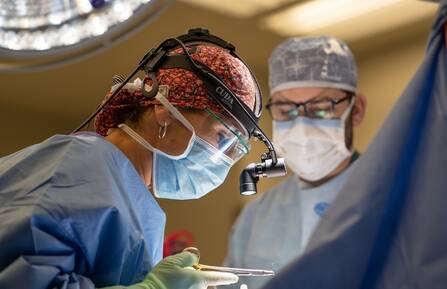Research and Innovation

New Genome Imaging Technology to Better Diagnose Cancer: A Close-Up on Chromosomes
Dartmouth Health is one of the first academic medical centers in the country to clinically implement digital karyotyping technology using optical genome mapping for blood cancers.

Precision Cancer Prevention: Digital Health
How does a behavioral health researcher look at precision cancer prevention?

Precision Cancer Prevention: A single nucleotide drop in the DNA sea
How does a pediatric oncologist look at precision cancer prevention?

Pinning immunotherapy on the map: A career in luck and luxury
After 40 years as a leading immunotherapy researcher, Randolph J. Noelle, PhD, reflects on past and future progress.

Precision Cancer Prevention: Teasing Apart Sub-Types of Tumors
How does an epidemiologist look at precision cancer prevention?
Where do Prouty donations go? 2023 Part 2
Even more cancer research "Pilot Projects" are off the ground thanks to Prouty fundraising.

Where do Prouty donations go? 2023 Part 1
New cancer research "Pilot Projects" are off the ground thanks to Prouty fundraising.

How immune cells shape our body's true age
New research reveals the secret to slowing down the aging process is intricately tied to a balance in your immune system.

Clinical trial trend shows better adherence to breast cancer medication
Data from the first year of a large clinical trial shows fewer side effects and better adherence to breast cancer medication when started before surgery.

Breast cancer research at Dartmouth Cancer Center
October is breast cancer awareness month. Here are just a few of the many breast cancer research projects happening at Dartmouth Cancer Center today.